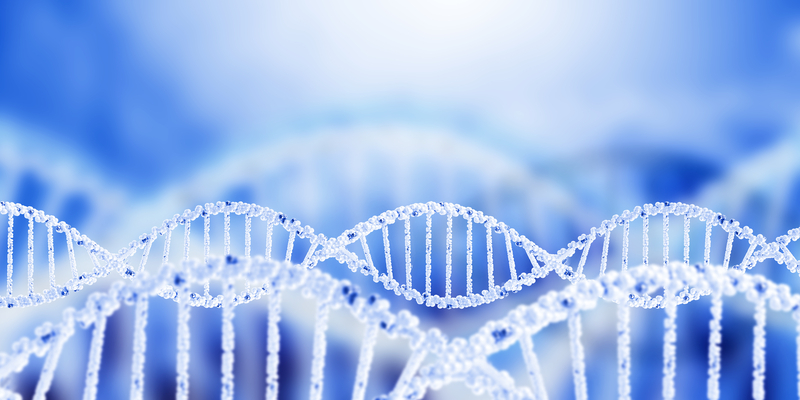Enzymatic DNA vs plasmid DNA

Is enzymatically produced DNA an alternative to plasmid DNA?
The global demand for DNA is rising significantly, with advanced therapies such as cell and gene therapies relying on the scalable production of DNA in their manufacture. Most of today’s genetic medicines (mRNA, DNA vaccines, viral vectors) are dependent on plasmid DNA as either a critical starting material or API.
Although plasmid DNA has proven its worth, by enabling production and availability of vaccines, the global demand for DNA, primarily in the form of plasmid DNA, has risen dramatically in recent years.
Alongside this, there are considerable challenges and limitations associated with the use of plasmid DNA, which is causing the industry to look for alternatives.
Some of the limitations of plasmid DNA include slow production, long lead times, batch failure and E. coli fermentation, and the presence of antibiotic resistant genes. Additionally, plasmid DNA contains bacterial CpG islands, resulting in innate immune signalling. Improved gene expression is needed to enable genetic medicines such as DNA vaccines and non-viral gene therapy.
Enzymatically produced DNA – an alternative to Plasmid DNA
Within advanced therapy manufacturing, more and more companies are turning to enzymatically produced DNA as an alternative to plasmid DNA. Replacing plasmid DNA with enzymatically produced DNA eliminates many issues around complex or unstable sequences. It is proven to rapidly reduce timelines and costs at scale, while also improving the quality of the product.
What is enzymatic DNA?
Enzymatic DNA is DNA is manufactured in a cell free process using enzymes. It does not require the larger fermentation volumes associated with plasmid DNA.
Touchlight’s doggybone DNA (dbDNA™) is a leading example of enzymatic DNA. Doggybone DNA is a linear, double stranded, covalently closed DNA vector which is produced in an enzymatic manufacturing process. It can incorporate a gene of interest up to 20kb making it very flexible to support a range of genetic medicines including mRNA, DNA vaccines and viral vectors.
Leveraging its ability to amplify any circular DNA template using a proprietary in vitro enzymatic technology, doggybone DNA addresses most of the issues of traditional fermentation and outperforms plasmid DNA in terms of speed, scalability, and safety. This proprietary DNA manufacturing platform enables scalable DNA production in weeks, rather than the months taken to make plasmid DNA using traditional E. coli fermentation methods.
How doggybone DNA can help support advanced therapy manufacturing.
Doggybone DNA is disrupting the decades-old technology of DNA production, moving away from restrictive biological approaches. So how can enzymatic DNA support advanced therapy manufacturing?
- Reduced timelines – doggybone DNA avoids prolonged fermentation waiting times by utilizing a cell-free enzymatic process. Enzymatic manufacturing enables scalable GMP DNA production in weeks rather than the months taken to make plasmid DNA.
- Improved quality, safety, and reliability – doggybone DNA excludes bacterial sequences and antibiotic resistance genes, helping to avoid the challenges posed by the unexpected behaviour of bacterial sequences. Fidelity is also proven to be comparable to plasmid.
- Reduced costs at scale – Scale economies in material prices significantly reduces costs at scale, while a higher copy number per gram than plasmid means less DNA is needed. For example, results have shown that down-titration in gene therapy actually increases expression, which simultaneously reduces the undesirable immune response from DNA.
- Avoidance of quality issues caused by complexity of sequence – doggybone DNA can amplify unstable sequences and produce difficult DNA. It delivers a higher gene copy number per gram versus plasmid DNA.
- Strong expression profile – doggybone DNA can encode long, complex, unstable sequences, and deliver a strong expression profile, with no extraneous sequences.
Enzymatic DNA vs plasmid DNA
About Touchlight
Touchlight is a privately-owned CDMO based in London, U.K., focused on the provision of DNA services and manufacture of enzymatically produced doggybone DNA (dbDNA™) to enable the development of genetic medicines. Touchlight provide rapid, enzymatic DNA development and manufacturing for all advanced therapy production, including mRNA, viral and non-viral gene therapy and DNA API. dbDNA is a minimal, linear, covalently closed structure, which eliminates bacterial sequences. Touchlight’s revolutionary enzymatic production platform enables unprecedented speed, scale, and the ability to target genes with a size and complexity that is impossible with current technologies. Clients can be supported from pre-clinical through development and supply, to licencing and tech transfer for use in-house.
